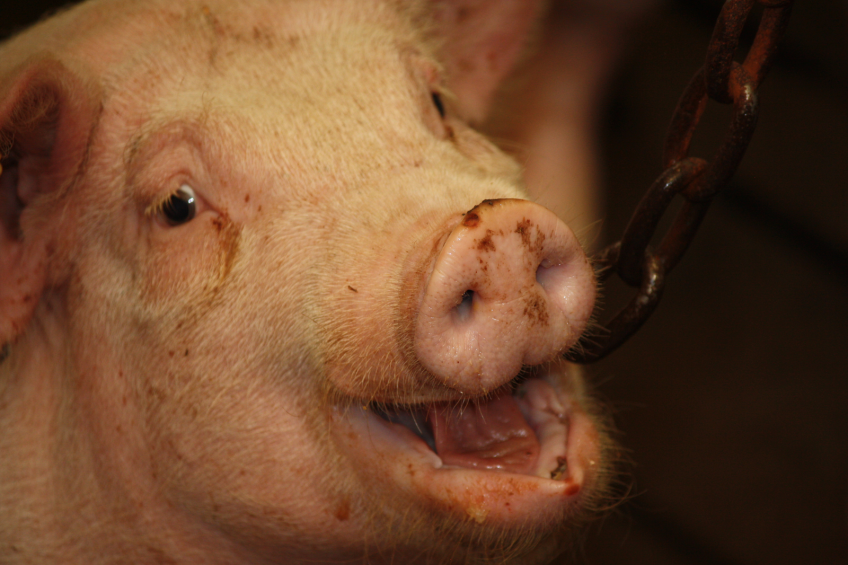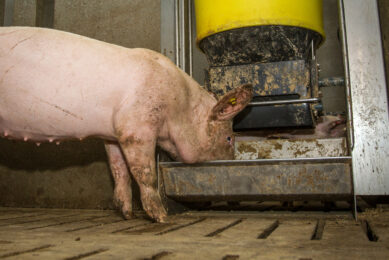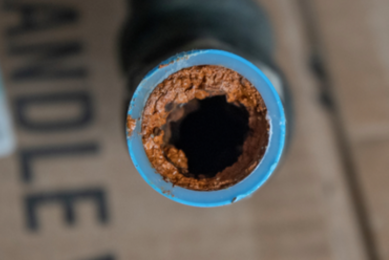UK: Massive savings from monitoring piggeries

A 5-10 day reduction in finishing time, an 80% cut in water waste, a 50% saving in fossil fuel use and performance variation narrowed by 50%. These are some of the achievable improvements pig producers can make by monitoring the performance of their herds.
These remarkable figures were revealed by Farmex managing director, Hugh Crabtree, at the BPEX Innovation Conference at Stoneleigh Park, Warwickshire. They were thrown up by a two year research project (PIVIT — Pig Improvement Via Information Technology) involving commercial pig farmers.
“With farmers having to manage more pigs with fewer man hours, units will have to rely increasingly on information and communications technology — or ‘smart pig farming’,” he said. In fact, he predicted that most professional pig-keepers would be monitoring their pig units on line within ten years.
“Agriculture is joining the machine-to-machine communication revolution with automated data analysis. This will lead to producers getting more things right, more of the time.” He said that the industry had some “low hanging fruit waiting to be picked”.
As an example, he cited how monitoring had enabled electricity cost per finishing pig on one unit to be reduced to £1.41 compared with an industry average of £3.52. On another unit the annual electricity charges in a 1350-place weaner building were cut from £12,546 to £7,840, a saving of 56 pence per pig.
Crabtree believed that it was important for farmers to define their normal levels of performance to compare them with what they thought they were achieving and what they wanted to achieve. While it was not necessary to measure everything, he said the key factors were temperature, feed, water, energy consumption and growth rates. “What pig farmer doesn’t want to know how fast his pigs are growing?” he queried.
The new in-pen growth sensor equipment could be of huge benefit since it could enable farmers to accurately measure pigs’ growth rates and feed conversion while they were actually growing. Not only would this help in fine-tuning of nutrition and management it would also provide an early warning of any problems.











